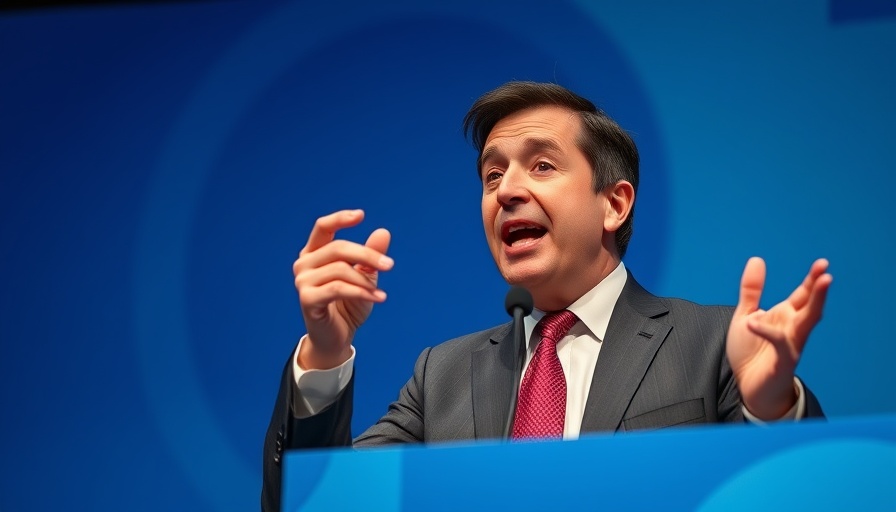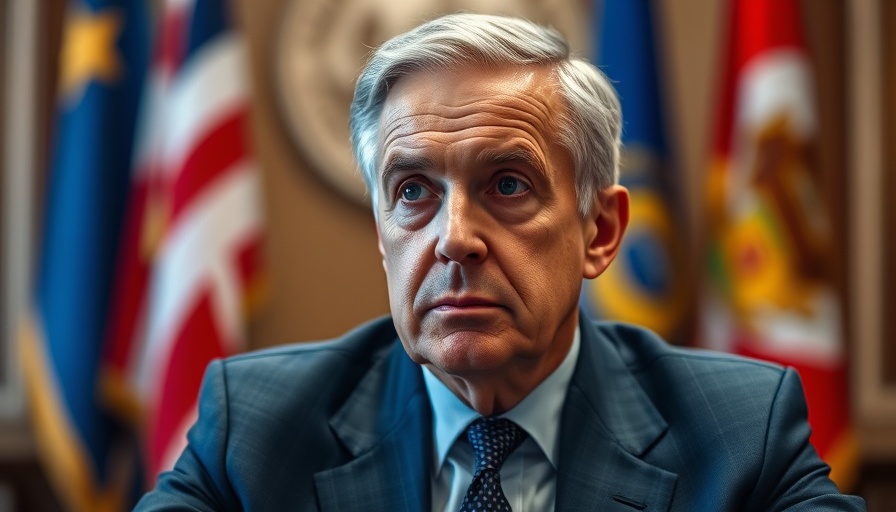
Understanding the Formation of the Ad Hoc Committee on National Security
The South African Parliament is currently engaging in critical discussions surrounding the establishment of an Ad Hoc Committee aimed at investigating pressing issues of national security. This committee's formation arises from serious allegations of political interference within the South African Police Service (SAPS), a situation highlighted by KwaZulu-Natal Police Commissioner Nhlanhla Mkhwanazi. The emergence of such concerns underscores a burgeoning conviction that accountability and reform are required to mitigate escalating concerns regarding crime and corruption.
Why National Security Matters in Current South Africa
National security is more than just a framework for protecting a nation; it is a lifeblood that sustains societal stability. In recent years, South Africa has faced numerous challenges ranging from rising crime rates to systemic corruption. The South African government, led by the African National Congress (ANC) and with Cyril Ramaphosa at the helm, is under scrutiny, especially as it prepares for the 2024 general elections. The effectiveness of governmental response to these crises could determine voter turnout and public sentiments towards reform and accountability.
The Role of Oversight in Strong Democratic Institutions
This forthcoming committee holds significant implications for parliamentary oversight and transparency in governance. As issues regarding state capture and executive accountability come to the forefront, the incorporation of both the Police and Justice committees signals a commitment to investigate these underlying issues comprehensively. Moreover, the potential involvement of various political parties, including the Democratic Alliance (DA) and the Economic Freedom Fighters (EFF), may reshape how national security strategies are debated and enforced.
Political Realignment and Shifts in Party Dynamics
The discussions leading to the Ad Hoc Committee’s formation might signify larger political realignments in the country. With the 2024 elections around the corner, and the previous prominence of leaders like Jacob Zuma still felt in the political landscape, how parties like the ANC, DA, and EFF navigate these investigations could redefine party dynamics. The emphasis on national security offers these parties a valuable platform to address concerns about public safety, crime prevention, and service delivery across diverse communities.
Historical Context: Past Investigations and Reforms
Looking back at South Africa’s history of corruption and security failures offers an essential perspective on the current situation. Previous investigations into SAPS misconduct have not only influenced policy but also reshaped public expectations regarding governance. For instance, the aftermath of the Marikana massacre showcased the nation’s urgent need for police reform and adherence to human rights standards. As the Ad Hoc committee takes shape, lessons learned from past challenges may guide its approach towards enhancing judicial independence and police reform.
Public Engagement: Civil Society's Role in National Security
As this committee convenes, the role of civil society and grassroots movements cannot be underestimated. Engaged citizens and organizations advocating for a transparent and accountable government are vital in ensuring that the findings of the Ad Hoc Committee translate into actionable reforms. Public sentiment surrounding issues like police conduct and state capture will significantly shape the outcomes of this investigative process.
Anticipating Opportunities for Reform
In contemplating the implications of this Ad Hoc Committee, one can identify opportunities for critical reforms within South Africa's political and security frameworks. With deep seated issues regarding service delivery and income inequality still prevalent in society, the committee could foster discussions around broader constitutional amendments and anti-corruption measures. Furthermore, addressing these matters may align with expectations for upcoming municipal elections, prompting greater voter participation among South Africans.
Final Thoughts: The Importance of Transparency and Accountability
As the nation grapples with its past and shares its aspirations for the future, the establishment of the Ad Hoc Committee presents a pivotal moment for both Parliament and citizens alike. It serves as a beacon of hope for accountability, potentially inspiring reforms in various sectors such as land reform, healthcare, and youth unemployment initiatives.
In a political climate rife with uncertainty, it is essential for the public to remain vigilant and informed about the workings of their government. As citizens, engaging with these developments and advocating for a more transparent and responsive governance framework is vital for building a nation that truly embodies democratic ideals.
Now more than ever, it is crucial for South Africans to push for reforms that will lead to a better, more equitable society. Join the conversation and advocate for accountability in governance.
 Add Row
Add Row  Add
Add 




Write A Comment